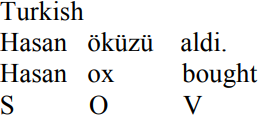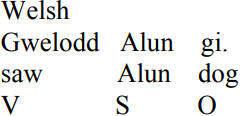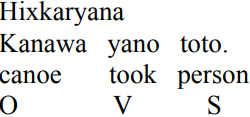

Grammar


Tenses


Present

Present Simple

Present Continuous

Present Perfect

Present Perfect Continuous


Past

Past Simple

Past Continuous

Past Perfect

Past Perfect Continuous


Future

Future Simple

Future Continuous

Future Perfect

Future Perfect Continuous


Parts Of Speech


Nouns

Countable and uncountable nouns

Verbal nouns

Singular and Plural nouns

Proper nouns

Nouns gender

Nouns definition

Concrete nouns

Abstract nouns

Common nouns

Collective nouns

Definition Of Nouns

Animate and Inanimate nouns

Nouns


Verbs

Stative and dynamic verbs

Finite and nonfinite verbs

To be verbs

Transitive and intransitive verbs

Auxiliary verbs

Modal verbs

Regular and irregular verbs

Action verbs

Verbs


Adverbs

Relative adverbs

Interrogative adverbs

Adverbs of time

Adverbs of place

Adverbs of reason

Adverbs of quantity

Adverbs of manner

Adverbs of frequency

Adverbs of affirmation

Adverbs


Adjectives

Quantitative adjective

Proper adjective

Possessive adjective

Numeral adjective

Interrogative adjective

Distributive adjective

Descriptive adjective

Demonstrative adjective


Pronouns

Subject pronoun

Relative pronoun

Reflexive pronoun

Reciprocal pronoun

Possessive pronoun

Personal pronoun

Interrogative pronoun

Indefinite pronoun

Emphatic pronoun

Distributive pronoun

Demonstrative pronoun

Pronouns


Pre Position


Preposition by function

Time preposition

Reason preposition

Possession preposition

Place preposition

Phrases preposition

Origin preposition

Measure preposition

Direction preposition

Contrast preposition

Agent preposition


Preposition by construction

Simple preposition

Phrase preposition

Double preposition

Compound preposition

prepositions


Conjunctions

Subordinating conjunction

Correlative conjunction

Coordinating conjunction

Conjunctive adverbs

conjunctions


Interjections

Express calling interjection

Phrases

Sentences


Grammar Rules

Passive and Active

Preference

Requests and offers

wishes

Be used to

Some and any

Could have done

Describing people

Giving advices

Possession

Comparative and superlative

Giving Reason

Making Suggestions

Apologizing

Forming questions

Since and for

Directions

Obligation

Adverbials

invitation

Articles

Imaginary condition

Zero conditional

First conditional

Second conditional

Third conditional

Reported speech

Demonstratives

Determiners


Linguistics

Phonetics

Phonology

Linguistics fields

Syntax

Morphology

Semantics

pragmatics

History

Writing

Grammar

Phonetics and Phonology

Semiotics


Reading Comprehension

Elementary

Intermediate

Advanced


Teaching Methods

Teaching Strategies

Assessment
Word order
المؤلف:
P. John McWhorter
المصدر:
The Story of Human Language
الجزء والصفحة:
24-5
2024-01-09
2604
Word order
A. In English, word order is subject-verb-object: The boy kicked the ball. Linguists call this word order SVO.
B. Different word orders. But across the world’s languages, we find all of the possible orders. There are actually more languages with SOV order than SVO, such as Turkish.

“Hasan bought the ox.”
There are languages where the verb comes first, such as Welsh.

“Alun saw a dog.”
Linguists used to consider it impossible that a language would have the direct reverse of our familiar SVO, but languages like this have been discovered, such as the Hixkaryana language spoken by a small group in South America.

“The man took the canoe.”
C. Word order and language change.
1. These different orders are the product of change over time. We cannot be sure what order the first language had, but most linguists think that the first one was either SVO or SOV. Languages tend to change their word order over time; therefore, the various ones in existence today arose when new languages drifted from the first language’s word order.
2. For example, Old English was basically an SOV language.
Old English
Hwi wolde God swa lytles þinges him forwyrnan?
why would God so small thing him deny
“Why would God deny him such a small thing?”
Biblical Hebrew put the verb first, but Modern Hebrew has SVO like Modern English.
3. In a language such as Warlpiri, for example, there actually is no set word order.
Warlpiri
maliki KA wajilipi-nyi kurdu wita-ngku
dog is chase child small
wajilipi-nyi KA maliki kurdu wita-ngku
wajilipi-nyi KA kurdu wita-ngku maliki
kurdu wita-ngku KA maliki wajilipi-nyi
kurdu wajilipi-nyi KA wita-ngku maliki
maliki KA kurdu wita-ngku wajilipi-nyi
“The small child is chasing the dog.”
The first language may have been like Warlpiri in this regard, which would mean that any set word order in a language is a change from how language began.
 الاكثر قراءة في Syntax
الاكثر قراءة في Syntax
 اخر الاخبار
اخر الاخبار
اخبار العتبة العباسية المقدسة

الآخبار الصحية















 قسم الشؤون الفكرية يصدر كتاباً يوثق تاريخ السدانة في العتبة العباسية المقدسة
قسم الشؤون الفكرية يصدر كتاباً يوثق تاريخ السدانة في العتبة العباسية المقدسة "المهمة".. إصدار قصصي يوثّق القصص الفائزة في مسابقة فتوى الدفاع المقدسة للقصة القصيرة
"المهمة".. إصدار قصصي يوثّق القصص الفائزة في مسابقة فتوى الدفاع المقدسة للقصة القصيرة (نوافذ).. إصدار أدبي يوثق القصص الفائزة في مسابقة الإمام العسكري (عليه السلام)
(نوافذ).. إصدار أدبي يوثق القصص الفائزة في مسابقة الإمام العسكري (عليه السلام)


















